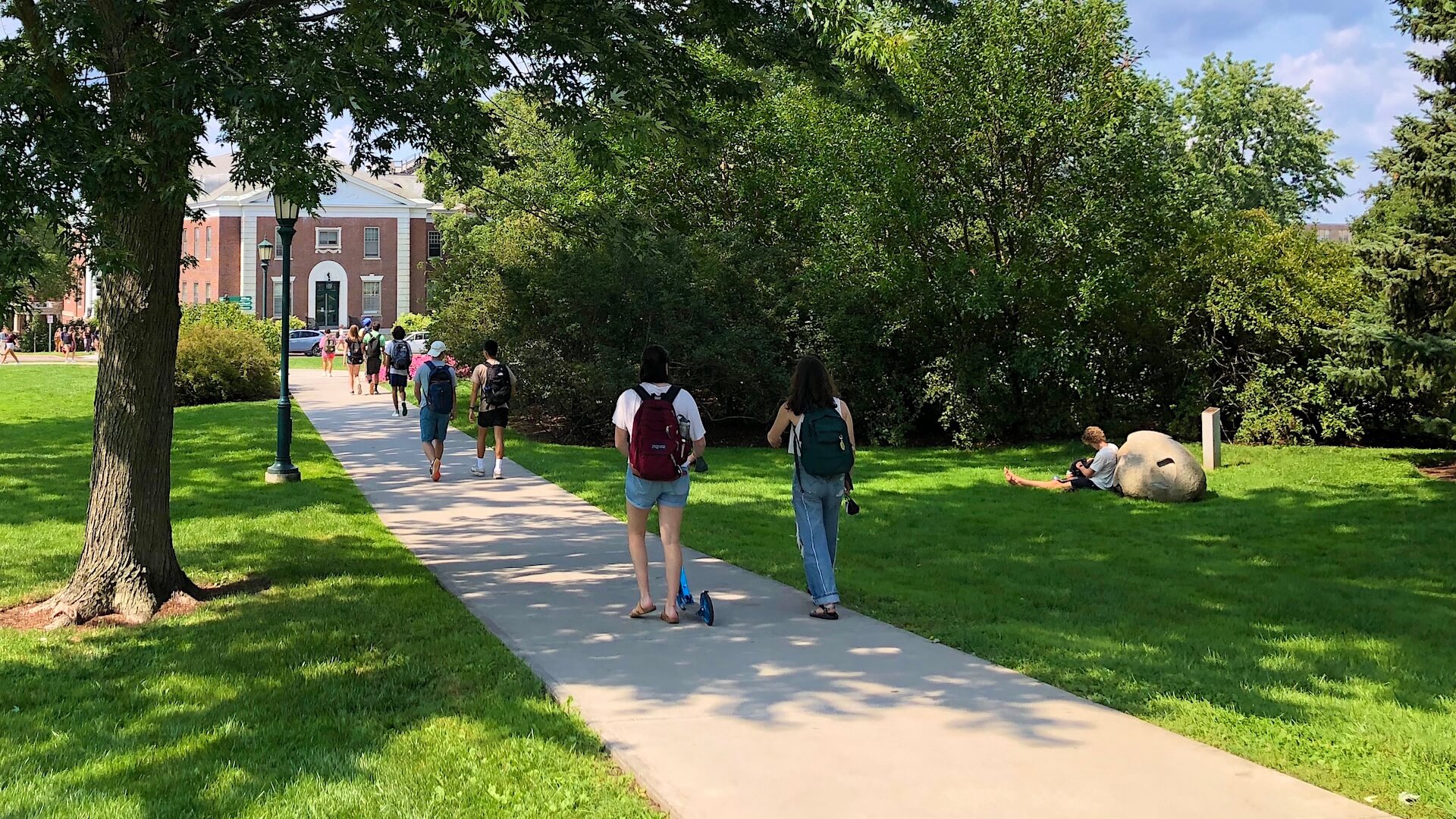Program Overview
Fostering a More Sustainable Future For People and Planet
UVM students have a clear interest in environmental education, outdoor education, service-learning, and experiential education. Place-based education helps students gain a better understanding the past while fostering a more sustainable future.
With its natural and human histories, economic and social issues, and political and ecological dynamics, our local environment provides a robust and integrative context for teaching and learning.
Connect with People and Places in the Community
Our collaboration with Shelburne Farms and other community partners offers unique opportunities to immerse yourself in the social-ecological system you are studying. Actively engage and deepen your connections to people and places in the local community and environment. Through an interdisciplinary approach, you will learn to address local social, cultural, and environmental issues with learners of all ages.

"I was able to see PBE in practice. It was very refreshing to see real kids experience what I have been learning about in my PBE classes, and how vital that connection to place is in understanding one’s community." – Ivy Befeler '23
Student Success Spotlight: Samantha Marcotte '23

"I believe the transferable outcomes and experiences that come from place-based and outdoor educational opportunities are truly far reaching.”
Inspiring Future Generations
Contact Us
Please reach out to our Student Services Office or contact one of the core faculty members shown below if you are interested in the Place-Based Education (PBE) Certificate.







